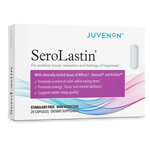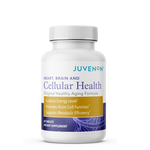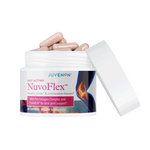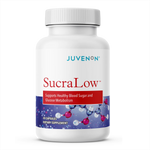The importance of diet and mental health has long been established. Growing research shows that key foods can be the difference in feeling positive and upbeat or struggling with blue moods. This article explores the top 5 foods for mental health that can help you support more balanced moods.

The Link between Food and Mental Health
Everyone’s heard the old adage: “you are what you eat.” When it comes to mental health, the saying could be translated to, “you feel what you eat.”
That’s because the food we eat directly influences the hormones and neurotransmitters in our brains that affect our moods.
When we talk about mood, what we’re really talking about are hormonal levels in the body. The four happy hormones include serotonin, oxytocin, dopamine, and endorphins. Activities can boost levels of these happy hormones in our bodies, but food also plays a major role.
Certain foods can cause a rise in these happy hormones. Others can cause a crash. Some can cause a combination of both.
While these four hormones are nicknamed happy hormones, they are better understood as regulatory hormones. There is no true sad or happy hormone, there are just levels of a hormone.
For example, higher serotonin levels are associated with joy and pleasure. Lower serotonin levels are associated with stress and sadness.
By understanding how food affects our hormones, we can choose foods not just for our satisfaction, but for our mental health.

What Foods are Good for Mental Health?
There are a lot of foods out there that can promote mental well-being, but some are more powerful than others.
Here is a list of the top foods for mental health:
Each of these foods have nutrient properties that have been scientifically shown to support hormonal balance and more positive moods. It is also true that deficiencies of these nutrient properties are associated with bluer moods.
Let’s discuss each food group in more detail and how they specifically support mental health.
Spinach, kale, collards, mustard greens — these are all various types of deep leafy green vegetables. You probably already know that deep leafy greens are good for your health, but here’s why they are great for mental health.
Deep leafy greens are rich in two important vitamins: vitamin B and vitamin K.
Vitamin B is integral for hormonal balance. Research shows that vitamin B helps boost hormones that control mood regulation, such as serotonin and dopamine.
Vitamin K has been linked to faster brain function, including better memory and cognition. In fact, it’s been shown that people with low vitamin K have a higher risk of cognitive decline and mood disorders.
This is just one other reason why getting your daily dose of deep leafy greens is so important.
Eating for your mental health doesn’t have to be all work and no play. Dark chocolate, rich in powerful antioxidants, has been shown to lift moods. Here’s why:
Dark chocolate comes from cocoa — a plant that is full of polyphenols. You’ve probably heard that polyphenols are good for you, whether for heart health, immune function, or more.
Polyphenols have antioxidative properties, which means they can help mitigate inflammation in the body and the brain. This is important for mental health, as excess inflammation can cause dysfunction across neurotransmitters/hormones.
Polyphenols have also been associated with decreased stress. Research shows that polyphenols have an attenuating effect on inflammatory biomarkers associated with stress.
Even now, scientists are working on ways to incorporate polyphenols as a means of treatment for bluemoods.
So when you’re thinking of what food to eat when you’re feeling low, dark chocolate can be the perfect pick-me-up!
Here’s a great reason to add more wild caught salmon to your diet. Wild caught salmon is rich in omega-3 fatty acids. Omega 3s have a ton of benefits, including mood-boosting effects.
Many studies examine the impact of omega-3 supplementation, concluding that omega-3s can be powerful in supporting people going through phases of blue moods, such as women after giving birth or seasonal changes.
Omega-3s can help seniors who want to keep their brain healthy as well as their mental health. Increased omega-3 levels are associated with faster brain speeds, better memory, and cognitive performance. These factors play a key role in mental health and wellness for seniors.
Salmon is a versatile fish with big benefits when it comes to happier moods. If you’re not a fish person but still want to get your omega-3s, avocados can be a great substitute!
Lean red meats and poultry offer some promising mental health benefits.
Chicken and beef, the second and third most consumed meats in the world, are great sources of L-carnitine and alpha lipoic acid.
L-carnitine is a powerful amino acid that has been shown to support brain and mental health.
Studies show that L-carnitine can significantly decrease feelings of sadness in people who have frequent bouts of blue moods.
Alpha lipoic acid, an antioxidant, helps promote mental health by fighting inflammation that disrupts hormonal balance.
Many studies show alpha lipoic acids have positive effects on memory and cognitive function, and more studies are examining its potential in supporting mental health.
One study found that alpha lipoic acid might be able to help minimize ruminative behaviors — which include stressing over seemingly small details, such as a slightly crooked tie, clothes being out of color order, etc.
Another study examines how alpha lipoic acid and other amino acids might help stabilize hormones in people with mood swings.
Together, L-carnitine and alpha lipoic acid have many health-boosting effects, and it's convenient that both chicken and beef have high sources of both.
Who doesn’t love a bowl of fresh berries to kick-start their day? Berries aren’t just healthy sweet treats — they are nature’s chill pill.
Berries are known for their antioxidative properties. With high flavonoid levels, they also pack a punch for mental health.
Some studies suggest that berries can help people feel more optimistic and joyful.
Other studies show that in middle-aged people, blueberries help boost cognition and memory.
One study showed that mulberries might be a great mood boosting food by helping promote a calming effect on the central nervous system.
Acai berry — a popular superfood, has been shown to support healthier brain function and happier moods.
It seems no matter which berry you choose, they can all have a positive effect on your mood and mental well-being.
Other Ways to Boost Mental Health Through Diet
We talked at length about the various foods that promote mental health. The key in each of these foods was the nutrient properties within them, such as alpha lipoic acid, l-carnitine, vitamin B, and others.
Supplements can also support your mental health, especially if they contain these nutrients.
Our healthy aging supplement Cellular Health® can be a great option for those looking for a natural supplement to support their mental well-being.
Cellular Health® features the dynamic antioxidant and amino acid powerhouse alpha lipoic acid and l-carnitine.
Together, these two nutrients can boost brain health and mental wellness by supporting hormonal balances, enhancing inflammatory response, and improving neurotransmitter health.
Plus, Cellular Health® also features vital support ingredients such as phosphorus, biotin, and calcium — all of which play a major role in balancing moods.
Many of our customers say Cellular Health® is their key to feeling their best at every age. Click here to learn more about Cellular Health®.
Conclusion
Eating for your mental health is a great place to start on your mental wellness journey. With a variety of foods and nutritional options out there, the possibilities are endless.
Mental wellness changes for us at every stage in life, and getting older, we have to be especially aware of how our food is affecting our moods.
It’s not just “you are what you eat,” it’s “you feel what you eat!” That’s something to keep in mind as you make choices for your diet every day.
Remember, there are helpful supplements you can add to your arsenal, like Cellular Health, which can help you maintain your mental health.
It’s natural for all of us to need a mood boost from time to time. Hopefully this article has helped you understand how you can take steps every day to boost your mental wellness.
References:
Eating green leafy vegetables keeps mental abilities sharp. (n.d.). InScienceDaily. Retrieved April 22, 2024, from https://www.sciencedaily.com/releases/2015/03/150330112227.htm#google_vignette
Gbska, D., Guzek, D., Groele, B., & Gutkowska, K. (2020). Fruit and Vegetable Intake and Mental Health in Adults: A Systematic Review. InNutrients (Vol. 12, Issue 1, p. 115). Nutrients. https://doi.org/10.3390/nu12010115
Hoepner, C. T., McIntyre, R. S., & Papakostas, G. I. (2021). Impact of Supplementation and Nutritional Interventions on Pathogenic Processes of Mood Disorders: A Review of the Evidence. InNutrients (Vol. 13, Issue 3, p. 767). Nutrients. https://doi.org/10.3390/nu13030767
Hsu, M.-C., Tung, C.-Y., & Chen, H.-E. (2018). Omega-3 polyunsaturated fatty acid supplementation in prevention and treatment of maternal depression: Putative mechanism and recommendation. InJournal of affective disorders (Vol. 238, pp. 47–61). Journal of affective disorders. https://doi.org/10.1016/j.jad.2018.05.018
Krikorian, R., Skelton, M. R., Summer, S. S., Shidler, M. D., & Sullivan, P. G. (2022). Blueberry Supplementation in Midlife for Dementia Risk Reduction. InNutrients (Vol. 14, Issue 8, p. 1619). Nutrients. https://doi.org/10.3390/nu14081619
Loong, S., Barnes, S., Gatto, N. M., Chowdhury, S., & Lee, G. J. (2023). Omega-3 Fatty Acids, Cognition, and Brain Volume in Older Adults. InBrain sciences (Vol. 13, Issue 9, p. 1278). Brain sciences. https://doi.org/10.3390/brainsci13091278
Souza-Monteiro, J. R., Arrifano, G. P. F., Queiroz, A. I. D. G., Mello, B. S. F., Custdio, C. S., Macdo, D. S., Hamoy, M., Paraense, R. S. O., Bittencourt, L. O., Lima, R. R., Burbano, R. R., Rogez, H., Maia, C. F., Macchi, B. M., José Luiz M do Nascimento, & Crespo-Lpez, M. E. (2019). Antidepressant and Antiaging Effects of Açaí (Euterpe oleracea Mart.) in Mice. InOxidative medicine and cellular longevity (Vol. 2019, pp. 3614960–3614960). Oxidative medicine and cellular longevity. https://doi.org/10.1155/2019/3614960
Tam, D. N. H., Nam, N. H., Elhady, M. T., Tran, L., Hassan, O. G., Sadik, M., Phan Thi My Tien, Elshafei, G. A., & Huy, N. T. (2021). Effects of Mulberry on The Central Nervous System: A Literature Review. InCurrent neuropharmacology (Vol. 19, Issue 2, pp. 193–219). Current neuropharmacology. https://doi.org/10.2174/1570159X18666200507081531
Trebatick, J., & urakov, Z. (2015). Psychiatric Disorders and Polyphenols: Can They Be Helpful in Therapy? InOxidative medicine and cellular longevity (Vol. 2015, pp. 248529–248529). Oxidative medicine and cellular longevity. https://doi.org/10.1155/2015/248529
Volchegorski, I. A., Miroshnichenko, I. I., Rassokhina, L. M., Fazullin, R. M., & Priakhina, K. E. (2014). The effect of 3-oxypyridine and succinic acid derivatives on obsessive-compulsive activity of mice in marble-burying test. InEksperimental’naia i klinicheskaia farmakologiia (Vol. 77, Issue 10, pp. 10–14). Eksperimental’naia i klinicheskaia farmakologiia. https://pubmed.ncbi.nlm.nih.gov/25518521/
Young, L. M., Pipingas, A., White, D. J., Gauci, S., & Scholey, A. (2019). A Systematic Review and Meta-Analysis of B Vitamin Supplementation on Depressive Symptoms, Anxiety, and Stress: Effects on Healthy and “At-Risk” Individuals. InNutrients (Vol. 11, Issue 9, p. 2232). Nutrients. https://doi.org/10.3390/nu11092232
(N.d.-a). Retrieved April 22, 2024, from https://www.ncbi.nlm.nih.gov/pmc/articles/PMC8964433/
(N.d.-b). Retrieved April 22, 2024, from https://www.ncbi.nlm.nih.gov/pmc/articles/PMC6681600/
[2] Eating green leafy vegetables keeps mental abilities sharp | ScienceDaily
[3] Psychiatric Disorders and Polyphenols: Can They Be Helpful in Therapy? - PMC
[5] Omega-3 Fatty Acids, Cognition, and Brain Volume in Older Adults - PMC
[6] Carnitine and Depression - PMC
[9] Fruit and Vegetable Intake and Mental Health in Adults: A Systematic Review - PMC
[10] Blueberry Supplementation in Midlife for Dementia Risk Reduction - PMC
[11] Effects of Mulberry on The Central Nervous System: A Literature Review - PMC


















